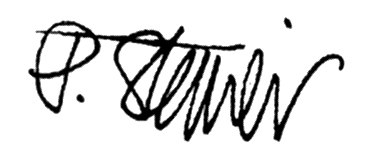BOOKLIST (starred review)
Prosecutors at the Nuremberg trials claimed afterward that the Nazis made their jobs easier with their obsessive record keeping. Atrocities were detailed on signed and dated forms. That compulsiveness is also the key to the criminal behavior exposed by Munich policeman Willi Geismeier, the good cop in this impressive novel. Steiner has pulled off a crime story and a procedural in the frame of a historical novel—in this case, the rise of Adolf Hitler and his Nazi Party. Maximilian Wolfe, artist and WWI veteran, is out for an evening with newspaper reporter Sophie Auerbach when the attack comes. There's gunfire. A death. Everyone involved is in some way touched by the ascendant Nazis, and the betrayals and cover-ups that follow reach deeply into the police and the establishment. Good-cop Geismeier is given the file, and he does such a good job of investigating that he's fired. But he did keep that file, which is useful as Gõtterdãmmerung unfolds. A precisely written, carefully plotted novel, all the more dramatic for its understated tone.
LIBRARY JOURNAL (starred review)
At the end of the war in 1918, Maximilian Wolf returns to Munich. His sketches of soldiers and people in the street capture life in the battle-scarred postwar city. He gets a job at a newspaper, working beside journalist Sophie Auerbach. Together they chronicle the rise of Adolf Hitler and the Nazis until the newspaper offices are bombed, which brings police detective Willi Geismeier to their doors. Although Max's sketches help identify the bombers, Willi is taken off the case because he is a good detective who opposes criminals and Nazis. Throughout the 1920s, these three people chronicle the abuses and horror of Hitler and his supporters, until Hitler is named chancellor in 1933. All three abruptly disappear when a second newspaper, The Munich Post, is destroyed and the staff sent to Dachau concentration camp. The unconventional story resumes when the Americans arrive in Munich in 1945. In a disturbing, menacing novel featuring courageous, believable characters, former New Yorker cartoonist and author ("Louis Morgon" spy novels) Steiner tells a thought-provoking story of the importance of a free press when a country and its justice system are in upheaval. VERDICT Strongly recommended for all readers interested in this era or in a free press. Fans of Rebecca Cantrell's "Hannah Vogel" series will recognize the bleak atmosphere.—Lesa Holstine, Evansville Vanderburgh P.L., IN

